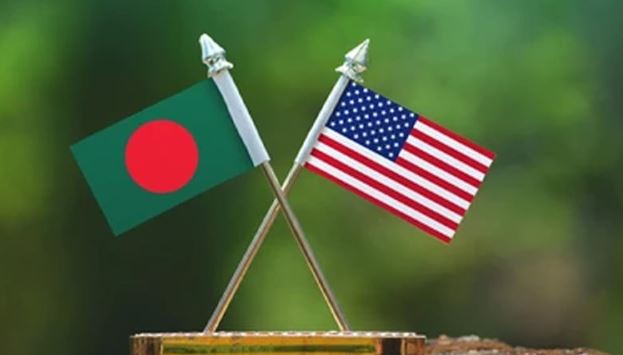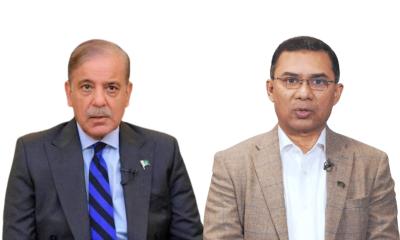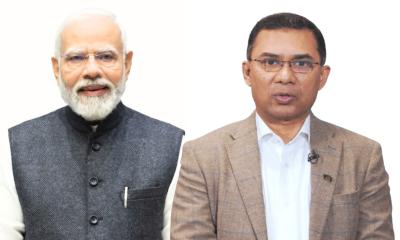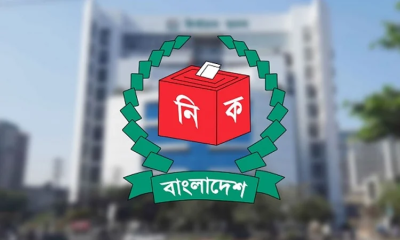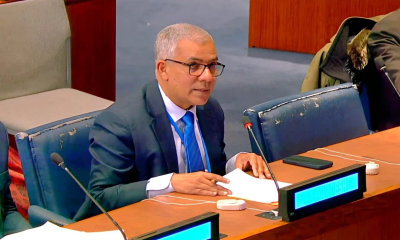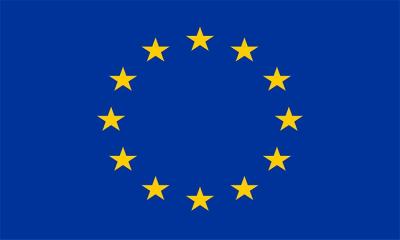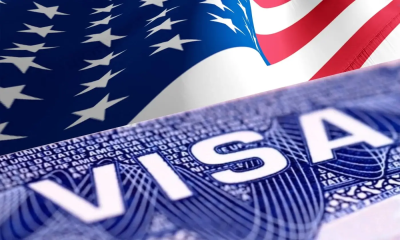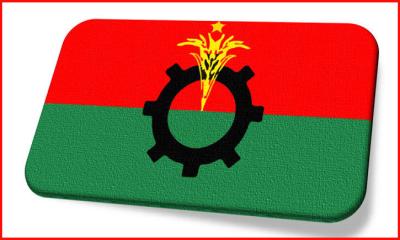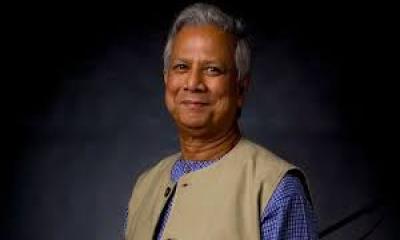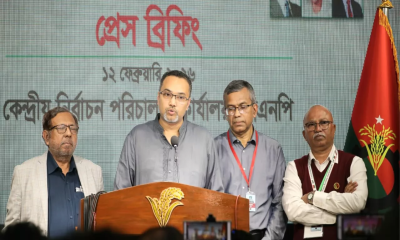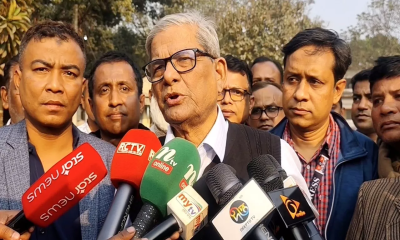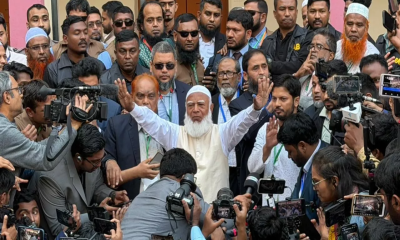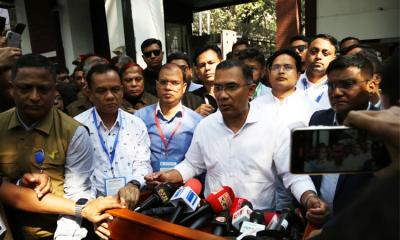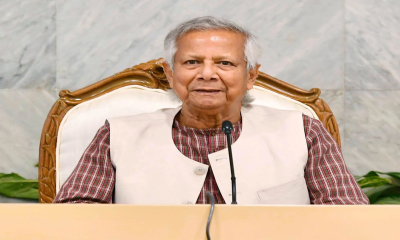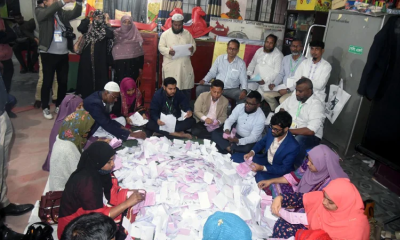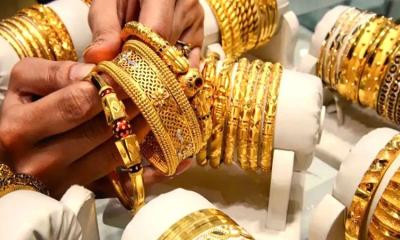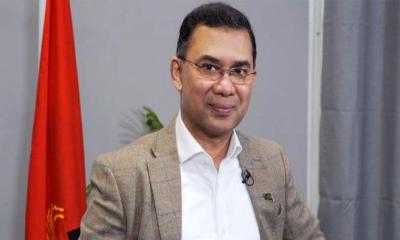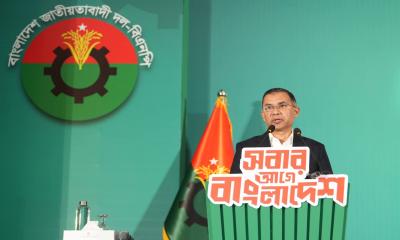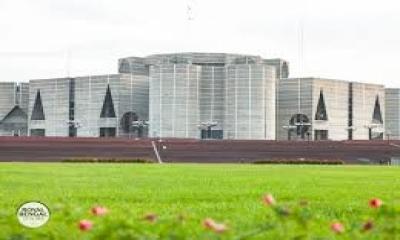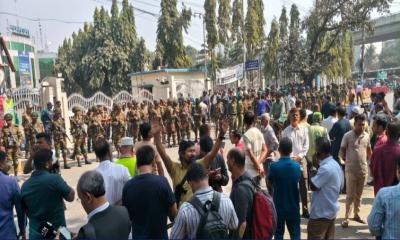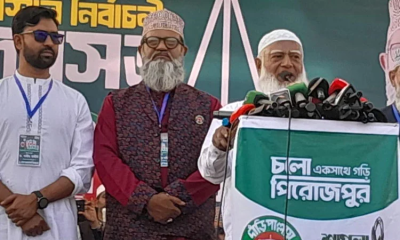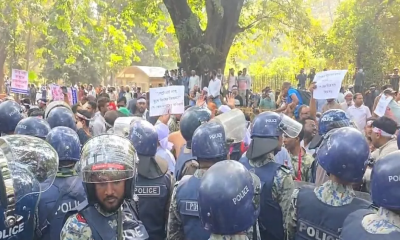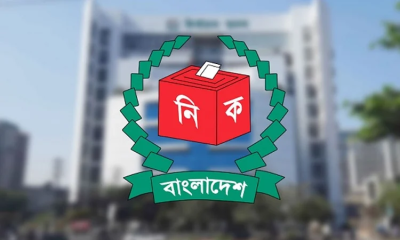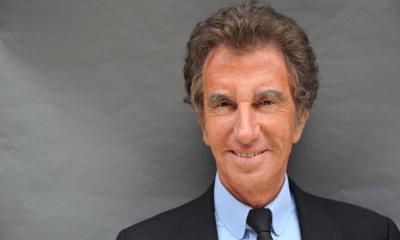A high-level meeting between Bangladesh and the Office of the United States Trade Representative (USTR) ended in Washington, DC, yesterday without a major decision, despite the looming expiry of a 90-day negotiation window on July 9.
The meeting, held at the USTR headquarters, was led by Bangladesh`s Commerce Adviser Sk Bashir Uddin and National Security Adviser Khalilur Rahman. Brendan Lynch, assistant US trade representative for South and Central Asia, represented the US side, The Daily Star.
The talks were described as "friendly" and "positive" by a Bangladesh official familiar with the discussion. Bangladesh expects an agreement on the contentious reciprocal tariff issue, which has been under negotiation since early April following President Donald Trump`s announcement of sweeping new tariffs.
A follow-up meeting is scheduled for July 8, and Bangladeshi officials remain hopeful that a breakthrough may be reached by then. Commerce Secretary Mahbubur Rahman will fly to the US to join the talks. "I will join the July 8 meeting in Washington," Rahman told The Daily Star.
According to sources, the USTR urged Bangladesh to carry out further technical work to bridge remaining differences. While progress has been made on several fronts, sticking points remain, particularly around rules of origin (RoO), geopolitical alignment clauses, and the structure of tariff reciprocity.
The Trump administration`s initial tariff announcement raised duties on Bangladeshi exports to 53 percent from a prior effective rate of 16 percent. Bangladesh is seeking to bring the figure down through a negotiated agreement, offering reciprocal zero-duty access to many US goods in return.
But negotiations have stalled over several "tough conditions," according to officials familiar with the matter. One key demand from Washington is for Bangladesh to adopt regional rather than domestic value addition in its exports, a move Dhaka fears could hurt local industries.
Another contentious clause in the draft agreement would require Bangladesh to mirror US sanctions or embargoes against third countries, effectively aligning Dhaka`s trade policy with Washington`s geopolitical stance, according to the officials.
For example, if the US imposes a ban on Chinese goods, Bangladesh will be expected to follow suit. "That`s simply not feasible given our heavy reliance on Chinese inputs for industrial production," one of the officials said.
Commerce Secretary Rahman acknowledged the challenges: "It is very difficult to reach a consensus under such tough conditions. Negotiations must continue."
LIMITED LEVERAGE
Bangladesh`s relative trade size with the US appears to be working against it. While bilateral trade stands at roughly $10 billion -- of which Bangladesh exports $8 billion worth of goods -- the volume pales in comparison to Vietnam`s $200 billion trade relationship with the US.
The Trump administration has already signed tariff deals with the UK and Vietnam, and negotiations with India and others are reportedly in the final stages. Under a three-month pause announced in April, Trump pledged to sign 90 reciprocal agreements, but only a handful have been concluded so far.
"Vietnam agreed to zero-duty imports of US goods, and in return secured a 20 percent tariff on its exports to the US, far lower than the 37 percent rate initially imposed," Rahman noted. "Their deeper trade ties made it easier to reach a deal."
By contrast, Bangladesh`s lower level of economic interdependence with the US means it has limited leverage to push back on US demands, despite offering substantial concessions.
As the July 9 deadline nears, uncertainty is weighing on exporters worldwide. Surveys showed that manufacturing sentiment is deteriorating across much of the US, Asia and Europe, in part due to anxiety over US tariff policies.
While Washington continues to push for far-reaching bilateral deals, analysts warn that many may remain unsigned due to the complexity of conditions attached.


